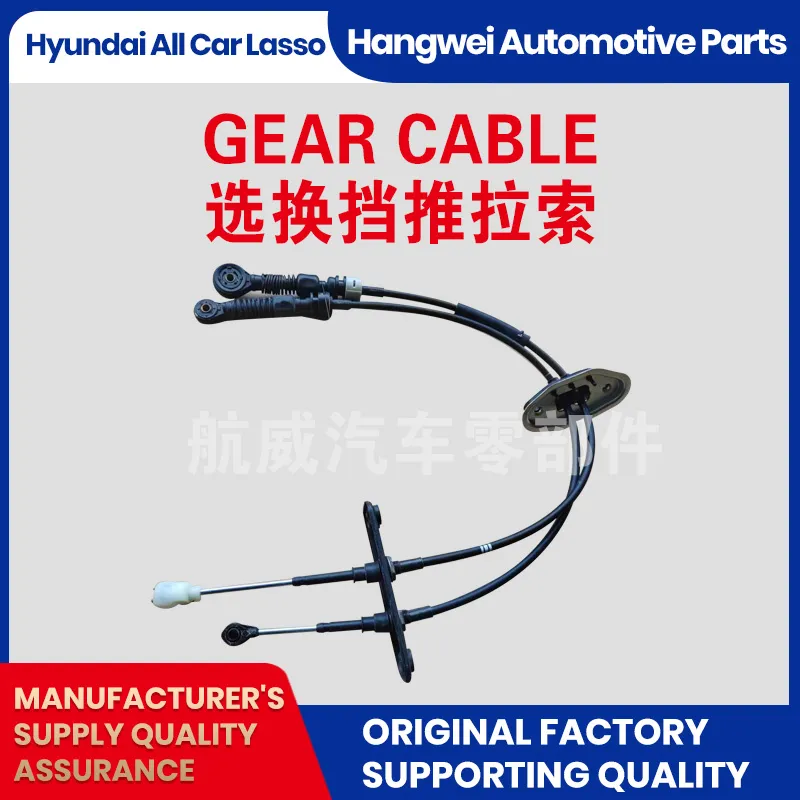Jul . 12, 2024 05:25
Back to list
Clutch fluid line Understanding the importance, maintenance, and potential problems associated.
Your car's clutch system is an essential component of its operation, allowing you to smoothly engage and disengage the transmission as you shift gears. The clutch fluid pipe is a crucial part of this system, responsible for delivering hydraulic fluid to the clutch master cylinder and ensuring proper clutch operation.
The clutch fluid pipe is typically made of metal or flexible rubber hose and is designed to withstand the high pressure generated by the hydraulic fluid in the system. It connects the clutch master cylinder, located near the brake fluid reservoir, to the slave cylinder, which is attached to the clutch assembly. When you press the clutch pedal, hydraulic pressure is created in the master cylinder, which is then transmitted through the clutch fluid pipe to the slave cylinder. This pressure causes the slave cylinder to move, disengaging the clutch and allowing you to shift gears smoothly.
It is essential to keep the clutch fluid pipe in good condition to ensure the proper operation of your clutch system. A damaged or leaking clutch fluid pipe can lead to a loss of hydraulic pressure, making it difficult to engage or disengage the clutch. This can result in grinding gears, difficulty shifting, or even complete clutch failure.
To prevent issues with the clutch fluid pipe, it is important to regularly inspect it for signs of wear or damage. Look for cracks, leaks, or bulges in the hose, as well as any signs of rubbing or chafing that could weaken the pipe

clutch fluid pipe. If you notice any of these issues, it is crucial to replace the clutch fluid pipe immediately to prevent further damage to your clutch system. In addition to regular inspections, it is also essential to maintain the proper level of hydraulic fluid in the system. Low fluid levels can lead to a loss of pressure in the clutch system, causing difficulties with shifting and potentially damaging the clutch components. Check the fluid level in the reservoir regularly and top it up as needed with the recommended type of hydraulic fluid. If you experience any problems with your clutch system, such as difficulty shifting gears or a spongy clutch pedal, have your vehicle inspected by a qualified mechanic as soon as possible. They will be able to diagnose any issues with the clutch fluid pipe or other components of the system and recommend the necessary repairs or replacements. In conclusion, the clutch fluid pipe is a critical component of your car's clutch system, responsible for delivering hydraulic pressure to disengage the clutch. By keeping the clutch fluid pipe in good condition and maintaining the proper hydraulic fluid level, you can ensure smooth and reliable operation of your clutch system. If you encounter any issues with your clutch system, have it inspected by a professional mechanic to prevent further damage and ensure your safety on the road.

clutch fluid pipe. If you notice any of these issues, it is crucial to replace the clutch fluid pipe immediately to prevent further damage to your clutch system. In addition to regular inspections, it is also essential to maintain the proper level of hydraulic fluid in the system. Low fluid levels can lead to a loss of pressure in the clutch system, causing difficulties with shifting and potentially damaging the clutch components. Check the fluid level in the reservoir regularly and top it up as needed with the recommended type of hydraulic fluid. If you experience any problems with your clutch system, such as difficulty shifting gears or a spongy clutch pedal, have your vehicle inspected by a qualified mechanic as soon as possible. They will be able to diagnose any issues with the clutch fluid pipe or other components of the system and recommend the necessary repairs or replacements. In conclusion, the clutch fluid pipe is a critical component of your car's clutch system, responsible for delivering hydraulic pressure to disengage the clutch. By keeping the clutch fluid pipe in good condition and maintaining the proper hydraulic fluid level, you can ensure smooth and reliable operation of your clutch system. If you encounter any issues with your clutch system, have it inspected by a professional mechanic to prevent further damage and ensure your safety on the road.
Latest news
-
Upgrade Your Control with Premium Throttle CablesNewsAug.08,2025
-
Stay in Control with Premium Hand Brake CablesNewsAug.08,2025
-
Experience Unmatched Performance with Our Clutch HosesNewsAug.08,2025
-
Ensure Safety and Reliability with Premium Handbrake CablesNewsAug.08,2025
-
Enhance Your Vehicle with High-Performance Clutch LinesNewsAug.08,2025
-
Elevate Your Ride with Premium Gear CablesNewsAug.08,2025
